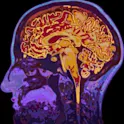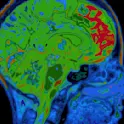
Featured news
03 Sep 2025
Happy music could help you recover from motion sickness
Listening to joyful music helped study participants with motion sickness recover better than other participants — while sad music helped less than doing nothing.

Featured news
03 Sep 2025
Listening to joyful music helped study participants with motion sickness recover better than other participants — while sad music helped less than doing nothing.

Featured news
22 May 2024
Researchers have shown for the first time that newborns of monolingual mothers respond differently to playback of a carefully selected sound stimulus than newborns of bilingual mothers. The findings suggest that bilingual newborns are sensitive to a wider range of acoustic variation of speech, at the cost of being less selectively tuned in to any single language. These results underscore the importance of prenatal exposure for learning about speech.

Featured news
07 May 2024
At Frontiers, we bring some of the world’s best research to a global audience. But with tens of thousands of articles published each year, it’s impossible to cover all of them. Here are just five amazing papers you may have missed.

Environment
15 Mar 2023
By Deborah Pirchner, Frontiers science writer Image: Shutterstock.com At Frontiers, we bring some of the world’s best research to a global audience. But with tens of thousands of articles published each year, it’s impossible to cover all of them. Here are just five amazing papers you may have missed. What praise and flattery does to our brains Both sincere praise and flattery are rewarding in different ways, but the various effects of these types of praise are not obvious. Now, researchers from Japan have published an article in Frontiers in Human Neuroscience in which they examined the brain activity of participants who received sincere praise or flattery after performing a visual search task. Using neuroimaging, the researchers found different effects of praise. The activation of the part of the brain modulating reward and pleasure processing was higher when participants received sincere praise than when they received flattery. The scientists also observed a socio-emotional effect, based on the positive feedback conveyed by praise. Altogether, they found that the neural dynamics of the rewarding and socio-emotional effects of different types of praise differ. Article link:https://www.frontiersin.org/articles/10.3389/fnhum.2023.985047/full Fish bone matrix may help heal bone defects Biocompatibility and osteogenic activity are properties of decalcified bone […]

Featured news
06 Dec 2022
By Frontiers’ science writers Image: Shutterstock.com As part of Frontiers’ passion to make science available to all, we highlight just a small selection of the most fascinating research published with us each month to help inspire current and future researchers to achieve their research dreams. 2022 was no different, and saw many game-changing discoveries contribute to the world’s breadth of knowledge on topics ranging from the climate crisis to robotics, and exercise to the lives of our ancestors. So to round of the year, here are 10 Frontiers articles from this year that got the world’s top media talking. 1. This illusion, new to science, is strong enough to trick our reflexes Have a look at the image below. Do you perceive that the central black hole is expanding, as if you’re moving into a dark environment, or falling into a hole? If so, you’re not alone: a study published to Frontiers in Human Neuroscience showed that this ‘expanding hole’ illusion, which is new to science, is perceived by approximately 86% of people. The researchers don’t yet know why a minority seem unsusceptible to the ‘expanding hole’ illusion. Nor do they know whether other vertebrate species, or even nonvertebrate animals […]

Featured news
01 Jun 2022
By Mischa Dijkstra, Frontiers science writer An illusion new to science shows that the pupillary light reflex, which controls the width of the pupil in anticipation of expected changes in light, depends on the perceived environment rather than the physical reality. Have a look at the above image. Do you perceive that the central black hole is expanding, as if you’re moving into a dark environment, or falling into a hole? If so, you’re not alone: a new study shows that this ‘expanding hole’ illusion, which is new to science, is perceived by approximately 86% of people. Dr Bruno Laeng, a professor at the Department of Psychology of the University of Oslo and the study’s first author, said: “The ‘expanding hole’ is a highly dynamic illusion: The circular smear or shadow gradient of the central black hole evokes a marked impression of optic flow, as if the observer were heading forward into a hole or tunnel.” Optical illusions aren’t mere gimmicks without scientific interest: researchers in the field of psychosociology study them to better understand the complex processes our visual system uses to anticipate and make sense of the visual world – in a far more roundabout way than a […]

Neuroscience
28 Mar 2022
By Colm Gorey, Frontiers Science Communications Manager Image: Shutterstock.com Each month, Frontiers shines a spotlight on some of the leading research across a wide range of topics. Here are just some of the highlights that resonated strongly with readers on our news site in the month of February. A replay of life: What happens in our brain when we die? Imagine reliving your entire life in the space of seconds. Like a flash of lightning, you are outside of your body, watching memorable moments you lived through. This process, known as ‘life recall’, can be similar to what it’s like to have a near-death experience. What happens inside your brain during these experiences and after death are questions that have puzzled neuroscientists for centuries. However, a new study published to Frontiers in Aging Neuroscience suggests that your brain may remain active and coordinated during and even after the transition to death, and be programmed to orchestrate the whole ordeal. Article link: https://www.frontiersin.org/articles/10.3389/fnagi.2022.813531/full 2. Eating vegetables does not protect against cardiovascular disease, finds large-scale study A long-term ‘UK Biobank’ study on almost 400,000 people published to Frontiers in Nutrition found little or no evidence that differences in the amount of consumed cooked or […]

Featured news
25 Feb 2022
By Peter Rejcek, science writer Image: Fizkes/Shutterstock.com Beginning at an early age, children can perform simple mathematical calculations using an intuitive ability to compare and estimate sets of objects. A new study published to Frontiers suggests this approximate number system extends to division. We often think of multiplication and division as calculations that need to be taught in school. But a large body of research suggests that, even before children begin formal education, they possess intuitive arithmetic abilities. A new study published in Frontiers in Human Neuroscience argues that this ability to do approximate calculations even extends to that most dreaded basic math problem – true division – with implications for how students are taught mathematical concepts in the future. The foundation for the study is the approximate number system (ANS), a well-established theory that says people (and even nonhuman primates) from an early age have an intuitive ability to compare and estimate large sets of objects without relying upon language or symbols. For instance, under this non-symbolic system, a child can recognize that a group of 20 dots is bigger than a group of four dots, even when the four dots take up more space on a page. The […]

Featured news
01 Oct 2020
New study shows cognitive benefits of doll play in children: Frontiers in Human Neuroscience

Featured news
10 Apr 2020
Players of action real-time strategy games better allocate brain resources between competing visual stimuli: Frontiers in Human Neuroscience

Featured news
07 Jan 2019
A study has shown for the first time that computers can predict individuals’ personality traits from their eye movements while engaged in everyday tasks; Frontiers in Human Neuroscience

Impact analysis
06 Jul 2018
With an Impact Factor of 2.871, Frontiers in Human Neuroscience is the most-cited journal in its field

Neuroscience
23 Feb 2018
A promising model for understanding neurological and psychiatric disorders could help provide personalized treatments for patients: Frontiers in Human Neuroscience

Featured news
15 Dec 2017
3,350+ articles published this year, from 17,400+ authors

Neuroscience
11 Sep 2017
Research on driver distraction published in Frontiers in Human Neuroscience shows that people’s minds wander a lot in a simulated daily work commute – but they not always aware of this.
Get the latest research updates, subscribe to our newsletter